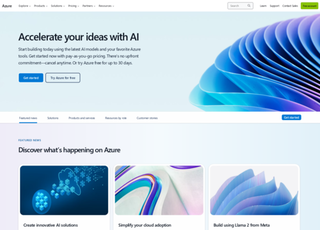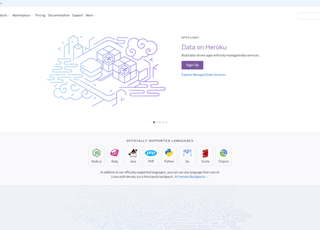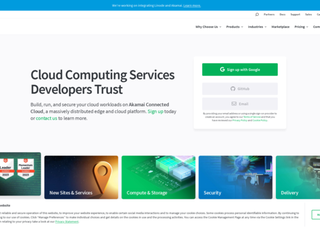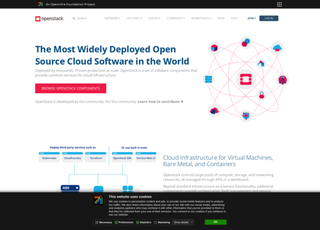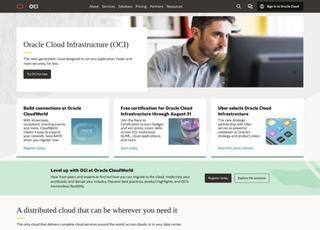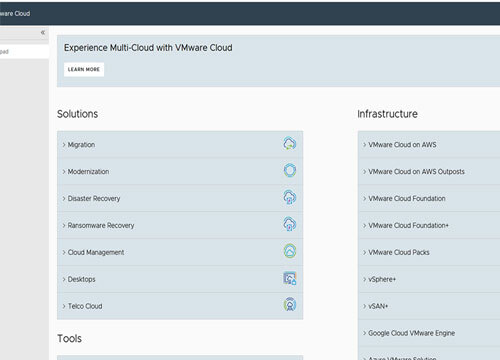AWS
Amazon Web Services (AWS) is an extensive, widely used cloud platform provided by Amazon. It features a broad range of services addressing different aspects of computing, storage, and networking, which empowers businesses and individuals to develop sophisticated applications with enhanced flexibility, scalability, and dependability.
Key elements of AWS
Compute Power
Elastic Compute Cloud (EC2)
EC2 forms the backbone of AWS's computing services. It allows users to rent virtual machines (instances) which they can tailor to their specific requirements. Users have control over the server configuration, including the choice of operating system, memory, processing power, and storage.
EC2 also offers various instance types optimized for different tasks, like compute-optimized, memory-optimized, and GPU instances for high-performance computing tasks.
Lambda
AWS Lambda is a serverless compute service, enabling users to run code without provisioning or managing servers. It automatically scales the application by running code in response to triggers such as changes in data, shift in system state, or user actions. Lambda is used for a variety of backend services and applications, where it manages the infrastructure, allowing developers to focus solely on code.
Storage Solutions
S3 (Simple Storage Service)
S3 is an object storage service offering scalability, data availability, security, and performance. It's commonly used for backup and recovery, data archives, data lakes for analytics, and cloud-native applications. S3 can store an unlimited amount of data and offers features like lifecycle management and storage classes for cost optimization.
EBS (Elastic Block Store)
EBS provides block-level storage volumes for use with EC2 instances. EBS volumes offer high availability and durability, and they're suitable for both throughput-intensive and transaction-intensive workloads.
Database Management
RDS (Relational Database Service)
RDS makes it easier to set up, operate, and scale a relational database in the cloud. It provides cost-efficient and resizable capacity while automating time-consuming administration tasks such as hardware provisioning, database setup, patching, and backups.
DynamoDB
DynamoDB is a fast and flexible NoSQL database service for any scale. It's suitable for mobile, web, gaming, ad tech, IoT, and many other applications that need consistent, single-digit millisecond latency at any scale.
Networking
Services like Amazon VPC (Virtual Private Cloud) allow users to create isolated networks within the AWS ecosystem, Route 53 offers a scalable DNS service, and AWS Direct Connect enables a dedicated network connection from one's premises to AWS.
Developer Tools
Amazon Web Services (AWS) offers a robust suite of developer tools designed to facilitate various stages of software development, deployment, and management. These tools help streamline workflows, increase efficiency, and enable continuous integration and delivery. Here's more detail on some of the key AWS developer tools:
AWS CodeCommit
Functionality: CodeCommit is a fully-managed source control service that hosts secure Git-based repositories. It enables teams to collaborate on code in a secure and highly scalable ecosystem.
Benefits: It eliminates the need to operate your own source control system or worry about scaling its infrastructure. It integrates with other AWS services, supports all Git commands and works with existing Git tools. It's also designed to securely store your code and offers encryption at rest and in transit.
AWS CodeBuild
Functionality: CodeBuild is a fully managed continuous integration service that compiles source code, runs tests, and produces software packages ready for deployment.
Benefits: It scales automatically and processes multiple builds concurrently, thus speeding up the software development and release process. CodeBuild eliminates the need to set up, manage, and scale your own build servers. It provides prepackaged build environments for popular programming languages and allows customization as per requirements.
AWS CodeDeploy
Functionality: CodeDeploy automates code deployments to any instance, including AWS EC2 instances and AWS Fargate, AWS Lambda, and on-premises servers.
Benefits: It facilitates rapid release of new features, helps avoid downtime during application deployment, and handles the complexity of updating applications. CodeDeploy can deploy application content stored in Amazon S3 buckets, GitHub repositories, or Bitbucket repositories.
AWS CodePipeline
Functionality: CodePipeline is a continuous integration and continuous delivery service that automates release pipelines for fast and reliable application and infrastructure updates.
Benefits: It integrates with AWS CodeCommit, CodeBuild, and CodeDeploy to enable the entire software release process from code change to deployment. CodePipeline automates the build, test, and deploy phases of your release process every time there is a code change, based on the release model you define.
AWS Cloud9
Functionality: Cloud9 is a cloud-based integrated development environment (IDE) that lets you write, run, and debug your code with just a browser.
Benefits: It includes a code editor, debugger, and terminal. Cloud9 comes prepackaged with essential tools for popular programming languages and AWS integrations, which makes it easy to write, run, and debug serverless applications.
AWS X-Ray
Functionality: X-Ray helps developers analyze and debug production, distributed applications, such as those built using a microservices architecture.
Benefits: With X-Ray, you can understand how your application and its underlying services are performing to identify and troubleshoot the root cause of performance issues and errors.
AWS Elastic Beanstalk
Functionality: Elastic Beanstalk is an easy-to-use service for deploying and scaling web applications and services developed with Java, C#, .NET, PHP, Node.js, Python, Ruby, Go, and Docker on familiar servers such as Apache, Nginx, Passenger, and IIS.
Benefits: You can simply upload your code and Elastic Beanstalk automatically handles the deployment, from capacity provisioning, load balancing, auto-scaling to application health monitoring.
Machine Learning and Artificial Intelligence
AWS proposes a variety of AI and ML services like SageMaker for crafting, training, and deploying machine learning models, and Lex for creating conversational interfaces.
Security and Identity Compliance
Services like IAM (Identity and Access Management) and AWS Shield provide robust security capabilities, ensuring secure access and defense against DDoS attacks.
Analytics
AWS has potent analytics services like AWS Athena for querying data in S3 using SQL and Amazon QuickSight for business intelligence.
Scalability and Reliability
AWS allows for auto-scaling and offers a highly dependable environment with data centers located in different global regions.
Flexibility and Cost-Effectiveness
With its pay-as-you-go pricing model, AWS offers flexibility and cost efficiency, allowing users to pay only for the services they use without incurring upfront expenses.
Integration and APIs
AWS provides a rich set of APIs (Application Programming Interfaces) that allow seamless integration with existing applications and systems. This facilitates automation, efficient management, and the ability to tap into AWS's vast capabilities programmatically.
Management and Monitoring Tools
AWS offers management tools like AWS CloudFormation for resource provisioning and management, and Amazon CloudWatch for monitoring resources and applications. These tools help in optimizing performance and managing resources effectively.
Content Delivery and Networking
Amazon CloudFront, a content delivery network (CDN), speeds up the distribution of content to users worldwide. This service is vital for delivering large scale media quickly and reducing latency.
Migration and Transfer Services
AWS provides services like AWS Migration Hub and AWS DataSync to assist businesses in migrating applications, data, and workloads to the AWS cloud smoothly and securely.
Mobile Services
AWS offers mobile services like AWS Amplify and Amazon Cognito, which help in building and scaling mobile applications. These services provide features like authentication, data storage, and backend integration.
IoT Services
For Internet of Things (IoT) applications, AWS offers IoT Core, which allows connecting devices to the cloud easily, and IoT Analytics for analyzing large volumes of data collected by IoT devices.
Edge Computing
AWS provides edge computing solutions like AWS Wavelength and AWS Outposts. These services bring AWS capabilities to the edge of the network, thus reducing latency for real-time data processing.
Blockchain Services
AWS offers Amazon Managed Blockchain, which allows users to create and manage blockchain networks more easily. This is beneficial for applications requiring secure, immutable transactions.
Quantum Computing
AWS is also exploring the realm of quantum computing with services like Amazon Braket, which allows users to experiment with quantum algorithms in a cloud environment.
Sustainability and Green Practices
AWS is committed to sustainability, aiming to power its operations with 100% renewable energy. It focuses on improving energy efficiency and reducing the environmental impact of its data centers.
AWS's expansive ecosystem provides a holistic set of tools and services for modern IT needs, from basic web hosting to complex machine learning applications. Its constant innovation, global infrastructure, and commitment to security and sustainability make it a go-to choice for organizations looking to leverage cloud technology.
























